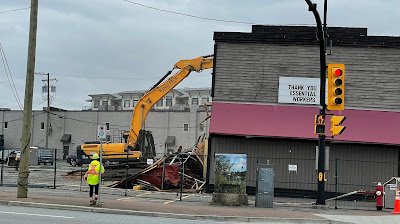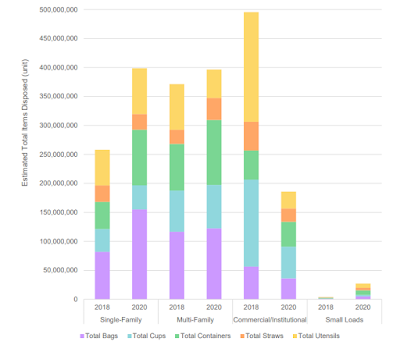When building SkyTrain extensions, TransLink requires municipalities to sign
Supportive Policies Agreements. Because of the significant federal,
provincial, and regional dollars that go into extending SkyTrain, TransLink
wants to ensure that these extensions provide the most benefit for people and
businesses in our region.
TransLink wants to avoid the situation along the Millennium Line between
Brentwood Town Centre and Production Way. These stations service low-density
areas, and as a result, have low boardings from those stations.
Langley City will be required to sign a Supportive Policies Agreement to get
SkyTrain.
Surrey’s
Supportive Policies Agreement was a topic
at the latest TransLink’s Mayors’ Council meeting. This agreement links
Surrey’s policies with
TransLink’s “6 Ds.”
We are in the process of
updating our Official Community Plan (OCP)
in Langley City. Langley’s draft new plan also addresses TransLink’s “6 Ds.”
Destinations: Coordinate land use and transportation
Langley City’s draft OCP enables building the highest density around the two
SkyTrain stations at 196th Street and 203rd Street.
Distance: Create a Well-Connected Street Network
Langley City’s draft OCP will create “an environment that is safe and
welcoming for the most vulnerable users first, and encourage people to walk,
cycle, roll, and take transit, rather than prioritizing faster vehicle
traffic.” Also, it will “reduce travel distances by creating more direct
connections to destinations. This includes building connections by providing
multiple direct route options, reducing block sizes, and adding mid-block
crossings where necessary.”
Design: Create Places for People
Langley City’s draft OCP is based on our
Nexus of Community
vision. Its four themes are community, connected, experiences and integration.
Langley City proposes to build a performing art centre Downtown. High-quality public
plazas will be integrated into areas immediately adjacent to SkyTrain
stations.
Diversity: Concentrate and Intensify Activities Near Frequent Transit
Beyond building the highest densities near SkyTrain, Langley City is also
proposing to allow duplexes, triplexes, townhomes, and walkable neighbourhood
commercial nodes along 200th Street and 208th Street. These mixes of housing
types and commercial nodes will support the frequent bus network, which feeds
into SkyTrain.
Diversity: Encourage a Mix of Uses
The draft OCP includes new mixed-use areas with ground-level retail and
offices/housing above, between 200th Street and 208th Street along Fraser
Highway.
Demand Management: Discourage Unnecessary Driving
Langley City’s draft OCP will prioritize walking, cycling, and taking transit.
Its draft policies include managing public parking to reduce demand and
reducing minimum on-site parking requirements for areas near SkyTrain stations
and frequent bus routes.
Langley City’s draft Official Community Plan ensures that we can sign a
Supportive Policies Agreement with TransLink or the province.




















